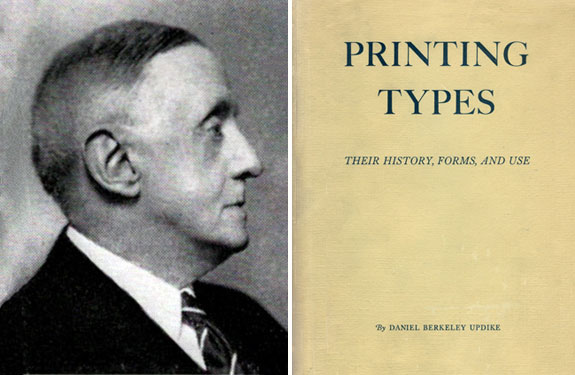February 24
In the city of Providence, Rhode Island, Daniel Berkeley Updike was born upon this day in 1860. With no practical background as a printer, he was destined to become one of the great American printers, and with no formal education as such, to become an outstanding scholar of printing, responsible for the revival of interest in the history of typography which took place forty years ago.
“Printing became the occupation of my life by pure accident,” Updike wrote as the opening statement in Notes on the Merrymount Press and Its Work, published by Harvard University Press in 1934. When he was twenty, a friend of his family secured a job for him as errand boy with the Boston publishing firm, Houghton, Mifflin & Company. After a few months he went on a short vacation, determining not to return, as he liked nothing about the job. He was, however, asked to come back. He was then given slightly more responsibility, working with the advertising manager in the writing and designing of the firm’s advertisements.
For a period of twelve years Updike held this position. He took time out for two European trips with his mother, one of which was of a year’s duration. During this period he acquired an intimate knowledge of the publishing field, meeting such literary luminaries as Longfellow, Howells, and Dr. Holmes. He was beginning to have ideas of his own, however, and wished to have some measure of independence. He was also becoming deeply involved in the affairs of the Episcopal Church of America, an enthusiasm which was later to mean, according to his biographer, George Parker Winship, “more to him personally than even his worldwide reputation!’
In 1893 Updike left Houghton, Mifflin & Company, and set himself up as a typographic adviser, or middleman between the customer and the printer. Naturally enough, he found that there were many frustrations in such a position. The solution was to perform his own printing. For this purpose the Merrymount Press was born, becoming one of the truly great printing offices on the American continent.
